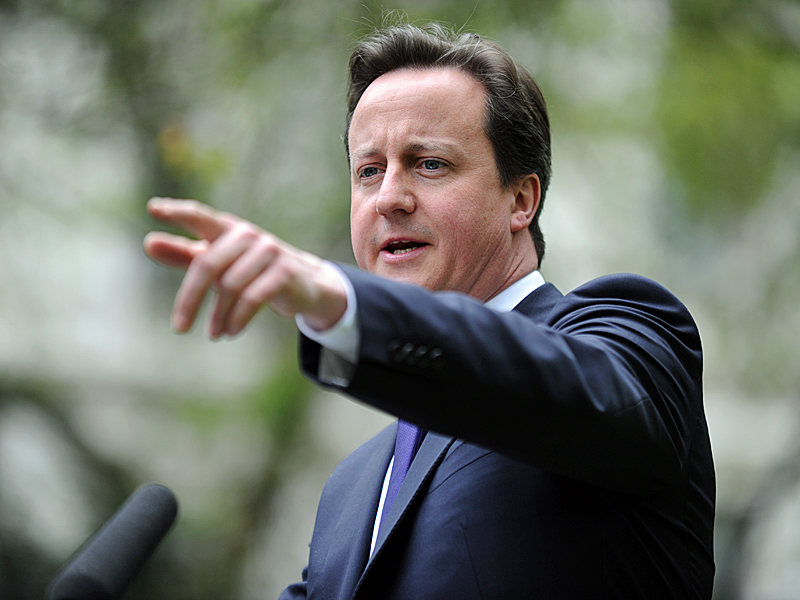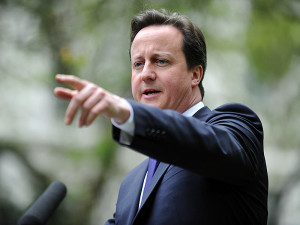On The Rocks: Britain’s Tense Relationship With The EU and The Upcoming Referendum
 https://www.flickr.com/photos/number10gov/4601626758/in/photolist-81Cxjo-826nLm-ddDk6K-9j7Yfv-kbiDd6-gtmUNg-ddE6gu-o13f9v-doRr8A-rnz2pX-k56TcM-pQKsv4-kLw9Lz-auPBrR-kwq5fM-8L6SGi-pvY48u-ouZVZt-9bPDJ9-jzbud7-93AwYi-aJuiAc-9kuTRW-oWEBFp-noWcjd-7mxzW-7RKmkj-9SbMjr-aFtZpv-88vpZq-9v1y64-9kohje-fbM3UX-nKeoNm-bULVAi-mVXYT4-rGP6D2-o2fMd6-owBxMM-nuTyq1-pWvjcK-sbqMDQ-bULUmZ-oc8QXZ-qgmbWG-qwe894-oymQoi-oyngac-8xHYue-bBQmEm
https://www.flickr.com/photos/number10gov/4601626758/in/photolist-81Cxjo-826nLm-ddDk6K-9j7Yfv-kbiDd6-gtmUNg-ddE6gu-o13f9v-doRr8A-rnz2pX-k56TcM-pQKsv4-kLw9Lz-auPBrR-kwq5fM-8L6SGi-pvY48u-ouZVZt-9bPDJ9-jzbud7-93AwYi-aJuiAc-9kuTRW-oWEBFp-noWcjd-7mxzW-7RKmkj-9SbMjr-aFtZpv-88vpZq-9v1y64-9kohje-fbM3UX-nKeoNm-bULVAi-mVXYT4-rGP6D2-o2fMd6-owBxMM-nuTyq1-pWvjcK-sbqMDQ-bULUmZ-oc8QXZ-qgmbWG-qwe894-oymQoi-oyngac-8xHYue-bBQmEm

In the wake of their 2015 victory at the polls, the Tories (Britain’s conservative party) have pushed ahead with their promise of a referendum on British membership in the European Union. While PM David Cameron set a deadline for the referendum as the end of 2017, many sources seem to indicate that the referendum will be held sometime this year. The referendum itself is a representation of a myriad of complex factors and sentiments that have long shaped the UK’s (at times) tense relationship with the rest of the EU. Some of these factors are purely economic, as some Britons feel the regulations and red tape put in place by Brussels hinder British business interests. However, other forces pushing for the so-called “Brexit” (a portmanteau of British and exit) stem from deeper-seated societal aspects since the beginning of British membership in what was then known as the European Economic Community (EEC) in 1973.
One element that has taken center stage in the rhetoric coming from the Conservatives is the issue of sovereignty. The Prime Minister has specifically taken issue with a clause in the 1957 Treaty of Rome, which established the framework for what would later become the European Union. The clause states the determination of the signatories to “lay the foundations of an ever closer union among the peoples of Europe.” For the stridently nationalist Conservatives, this has stoked fears that Brussels aims to eventually subsume the national sovereignty of the UK into a pan-European federalist state akin to that of the USA, a so-called United States of Europe. For a country that was once the preeminent imperial power in the world to shift to a constituency in a European federalist state would necessitate a major shift in the way the British view themselves as well as their government. While some of the more alarmist political figures in the UK falsely portray this as an inevitability, the ever-increasing integration of EU member states does admittedly make the idea of a federal Europe seem at least feasible.
With Europe still in economic turmoil following the 2008 crisis and still reeling from the deadly attacks on civilians in Paris last November and beset by one of the worst refugee crises in recent memory, it is hardly surprising that issues of sovereignty, security and economic policy have become a pressing regional issue and the forefront of public discourse. While Britain isn’t the only EU member state to call certain aspects of the EU into question (Denmark and Sweden, for example, have both reinstated border checks in response to the massive influx of migrants), it is the first one to officially put the question of its membership to a vote.
On the contrary, the opposition has argued that a British exit from the EU would mean the reinstatement of tariffs on British exports and would stifle industry within the UK. In addition, observers have noted that the referendum on EU membership has the possibility to reignite the issue of Scottish independence. Somewhat ironically, many of the frustrations that London has expressed with regards to Brussels mirror those that Scottish nationalists expressed during their 2014 bid for secession from the UK, and a British vote to leave the EU could greatly bolster the chances of the Scots voting in favor of secession. Leaders in the Northern Irish capital of Belfast have also speculated that the exit of the UK from the EU could reignite sectarian conflict between Catholics and Protestants after over a decade of fragile peace since the Good Friday agreement.
Drawing another key parallel with the Scottish referendum, many feel that the British referendum is less an earnest attempt to leave the EU and more of a bargaining chip for David Cameron to renegotiate the terms of membership with Brussels. Cameron himself is opposed to an exit from the Union, instead favouring renegotiation. The main categories of issues laid out in the Prime Minister’s negotiation with Brussels include migration, sovereignty and economic freedoms. Some of the measures proposed include an “emergency brake” system to slow the influx of EU-nationals into the UK as well as political protection of the British pound. While these measures do address some of the grievances of the British public, there is a risk that if Brussels doesn’t budge as far as some Britons want them to, Cameron will be powerless to stop the momentum toward a “Brexit.”
With all these factors hanging in the balance, the fight from both sides of the referendum is sure to be a contentious one. The possibility of Britain leaving the EU will have enormous ripple effects throughout the region, not just on the different corners of the UK but also on the integrity of the EU itself. A win for euroscepticism in Britain would fuel similar movements in other countries, and possibly mean the beginning of the end for the dream of “an ever closer union.”
